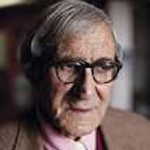Four Poems by Ennio Moltedo, from La Noche (1999)
4
Birthdays, celebrations. I died when it was time to go to high school. Since then we’ve seen only exhumations and the ongoing examinations—legal and illegal, under water or lit by the moon—so today I’m asking for a little peace, a natural interval in which to behold the meager imagination deployed in observances for the dead.
Landscapes, communal feats and faces immortalized in bank calendars; traveling families and sports teams beaming for the comic camera; academics and diplomats holding a forum in the Republic of Cunaní.
But what, dear God, do you say if what matters most is the photo.
Never forget the photo.
33
I denounce him with this cup of tea, says the young woman, snuffing out the porcelain by closing her eyes. I denounce them with this toast to good manners, says the industrialist from his armchair, signaling for some to enter and others to leave, directing every detail.
The curtain is coming down—who would have imagined it after so many years of experimental theatre—the cups of tea, the have-a-seats, the make-yourselves-at-home, the slaps-on-the-back between ourselves—because, it seems, that all that art and love is history —and, however much, morning or night, it’s recollected or blamed—who?
At times, it becomes necessary to soften the drama, reach for consensus and set the table with glasses and cups and gold-leaf gilding—where did these lovely old things come from—so that in this act everything will again become clear and possible and the past will be forgotten and I, director or actor, will have no illicit present or principles or sad endings.
I remember nothing and no one and all these lights and electronics are powerless to bring any of it back.
57
Write me a law, write it by hand. A law that lays down a life sentence: to read and listen to poetry. Including the epic, with its pre-fab prosody and caterpillar cadence: rhymed gunshots and bared breasts to excite the listener, and then what happens, happens.
Write me a law with a gold-tipped pencil on a table in the burnt-out palace so I can legally—always legally—spend the rest of my life safe and snug and laughing at all the movies.
A law, a law so we can breathe! Or at least an ordinance, something simple and local that will let us live in some cranny while the wind carries off—or carries in?—the sound of guns.
59
Eternal past of the chichi present: it returns in the form of electric shocks to what remains of our country: wiring and bright statistics in the precincts of war—smoke and swagger—and moving parts that appear with just a touch of the finger, like packaged pudding, thanks to the science devoted to envelopes, lids, and tubes to the void; a similar specialty: inflated diving suits and trash bags and private-practice surgery until the last breath of hope that life’s rhythm will be eternal, a trademarked fantasy, available on shelves and in heaps and piles of discarded old knock-offs; family choruses of instructions and edifying stories for children; but the terror, bottled and placed on our path between gardens, is stronger, a preamble to war, persistent to this day in the trembling of the chin—do you remember the film-interview, just outside the garden, when the connection, at nightfall?—Eternal is the past of the chichi present.
translator’s note:
The Hollow Pillars of the Law: Ennio Moltedo’s Chilean Night
In one of his final interviews, carried out with the Chilean journalist and scholar Montserrat Madariaga, Ennio Moltedo recounted an anecdote that bears on the poems in this edition of Anomaly. He was strolling with a friend in the gardens of the Federico Santa María Technical University in Valparaíso and happened upon a large cube constructed as an architectonic homage to engineering. He drew close, knocked on the surface, and found, to his surprise, that it was hollow. This gave him some ideas. Not long after, he bade a friend to accompany him to the National Congress; you’re my witness, he called out, then strode up the grand steps that are flanked by two enormously imposing columns. Rapping on them with his knuckles, he found that they were hollow: the pillars of the law supported nothing.
And the scales of justice? What did they support—the licit or illicit; due process or its mere appearance? Moltedo often noted that during Pinochet’s dictatorship, Parliament was shuttered but the judiciary still functioned—as an arm of the military regime. Legal terminology abounds in Moltedo’s poems, and usually leads us into territory that is chillingly surreal.
Moltedo wrote four books of poetry during and about the Pinochet dictatorship. La Noche, excerpted here, won a major prize and is the book for which the poet is best known. Consisting of 113 prose poems, it is full of tightly-controlled rage, resistance, and mourning. Although the writing is concise, there is a range of registers: lyrics and miniature epics; high dramas and alternate realities; as well as precise renderings of the sea and coastline, old city streets and corners, and the blight of nouveau-riche construction. Moltedo can be marvelously grouchy about modernization, and funny into the bargain; but his moral compass never wavers.
Born into a family of Genoese immigrants, Moltedo was deeply rooted in the adjacent coastal cities of Valparaíso and Viña del Mar. The sea is ever present in his poems—as backdrop or screen, as an elusive texture, or in cadences that are subtly tidal. There is a Mediterranean quality to much of his writing; and he is often compared with Cavafy, whose work he revered. As touchstones, Moltedo also named Tagore (“from the beginning”); Neruda (especially Residencia en la tierra); Gabriela Mistral (especially Lagar, her correspondence and her criticism); and Huidobro. It seems perfect that the Chilean publisher of Moltedo’s La Noche is called Altazor Ediciones, in tribute to Huidobro.
After his first book, Moltedo never again wrote lineated texts. In fact, he de-lineated his early poems. He searched within prose for interior rhythm and texture, for tense concision, and lyric expanse. However strange, his prose was not the prose of fiction; it was, he insisted, the poetry of political truth.

Marguerite Feitlowitz teaches literature at Bennington College, where she is Founding Director of Bennington Translates. The author of A LEXICON OF TERROR: Argentina and the Legacies of Torture, Feitlowitz translates the four genres from Spanish and French. Her newest translation publications include poems by Ennio Moltedo (in World Literature Today and Asymptote,) fiction by Luisa Valenzuela, poetry by Liliane Atlan, and memoir and sonnets by Salvador Novo. New original fiction appears in PANK, and an essay on the more personal aspects of her translating life is found at Entropy. Website: margueritefeitlowitz.com

Ennio Moltedo (1931–2012) spent his life in the small Chilean coastal cities of Valparaíso and Viña del Mar. A revered “poet’s poet,” he published eight collections and won numerous prizes. As Director of the University of Valparaíso Press, he championed the work of experimental poets (such as Pablo de Rokha) and prose writers (including María Luisa Bombal). His work is only now being translated into English (in World Literature Today and Asymptote) by Marguerite Feitlowitz, who learned of his work from a Santiago bookseller. She is translating both La Noche and Las Cosas Nuevas.
 BACK TO ISSUE
BACK TO ISSUE
 BACK TO FOLIO
BACK TO FOLIO
